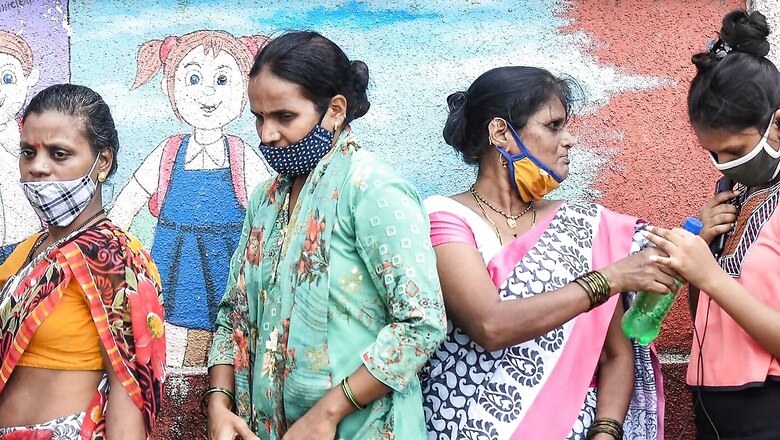
views
Women’s World Banking along with Bank of Baroda, had launched the Jan Dhan Plus solution programme in urban areas of Chennai, Delhi, and Mumbai in 2019. To make more people aware about the programme, the Women’s World Banking organised the second edition of their flagship thought-leadership series “Making Finance Work for Women” (MFWW) on Wednesday to discuss approaches to scale women’s financial inclusion in India.
During the recently held virtual event, a panel discussion was done on mainstreaming women’s financial inclusion. Attending the event, Amarjeet Sinha, former advisor to the Prime Minister and former secretary of the Ministry of Rural Development said, “The quest to find an answer to how we can achieve a reduction in poverty has been a long-pressing one, and that brought us to the Making Finance Work for Women virtual event.”
Also read| 57% of IT Professionals Would not Consider Returning to IT Services Sector: Survey
“Our years of work in rural India have found that confident women can truly run local economies, and the return on investing in women has consistently been higher. Members of women’s self-help groups have proved to be effective enterprises in helping women’s needs. Their community-connect and social capital must be leveraged for the path forward. Change and transformation happen when finances work for women, and I’d like to congratulate bankers for bridging the gap in gender inclusion in finance to a substantial extent.”
The Jan Dhan Plus model rests on three things — making the bank ecosystem a welcoming one for low-income women, making savings relatable and rewarding for women, and building the soft skills of business correspondents with a gender-focus to make them better understand and fulfil the needs of women customers, said the official press release.
Kalpana Ajayan, Regional Head-South Asia, Women’s World Banking, said, “India’s focus on financial inclusion has provided the requisite impetus to bring the unbanked segment into formal banking. Women-centered design approach, that is based on insights, when adopted across the value chain and by the entire ecosystem, can encourage women to better engage with financial products and services.”
Speaking from, the Jan Dhan Plus experience, Sanjiv Chadha, MD and CEO of Bank of Baroda, said, “Today 56 percent PMJDY accounts belong to women, this is encouraging, but we need to go beyond and go farther to reach every woman and young adult. More importantly, we need them to engage with their accounts, not just for DBTs or savings, but even for pension, insurance, credit, etc. Jan Dhan Plus has been an interesting trial that started off in 2020 in urban cities for low-income women and was then rolled out in rural areas. Through our partnership with Women’s World Banking we have focussed on strengthening capacities, pursuing a gender intentional approach and making our ecosystem gender sensitive to be able to better serve our women customers.”
Speaking at the event, Rajesh Bansal, CEO, Reserve Bank Innovation Hub said, “India is poised to be the hub of fintech in the future and women’s financial inclusion requires deploying innovation in financial services. RBIH’s Swanari was established to encourage more women-founded innovations that aim to solve for the financial needs of women. RBIH is also working towards gender-intelligent banking that could catalyse women’s financial inclusion.”
Read all the Latest Education News and Breaking News here

















Comments
0 comment